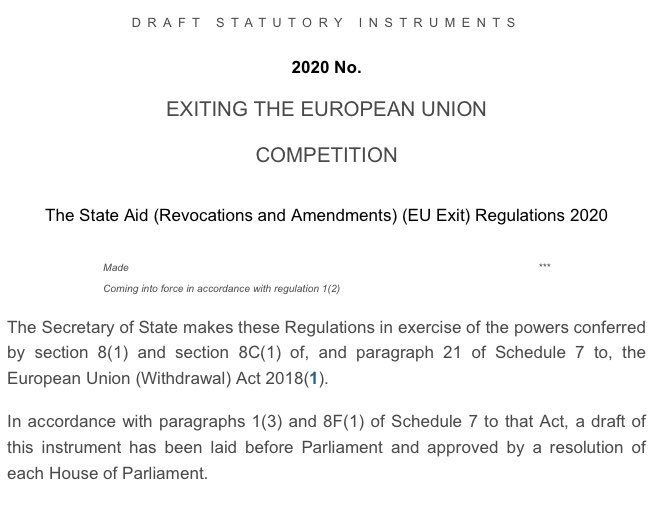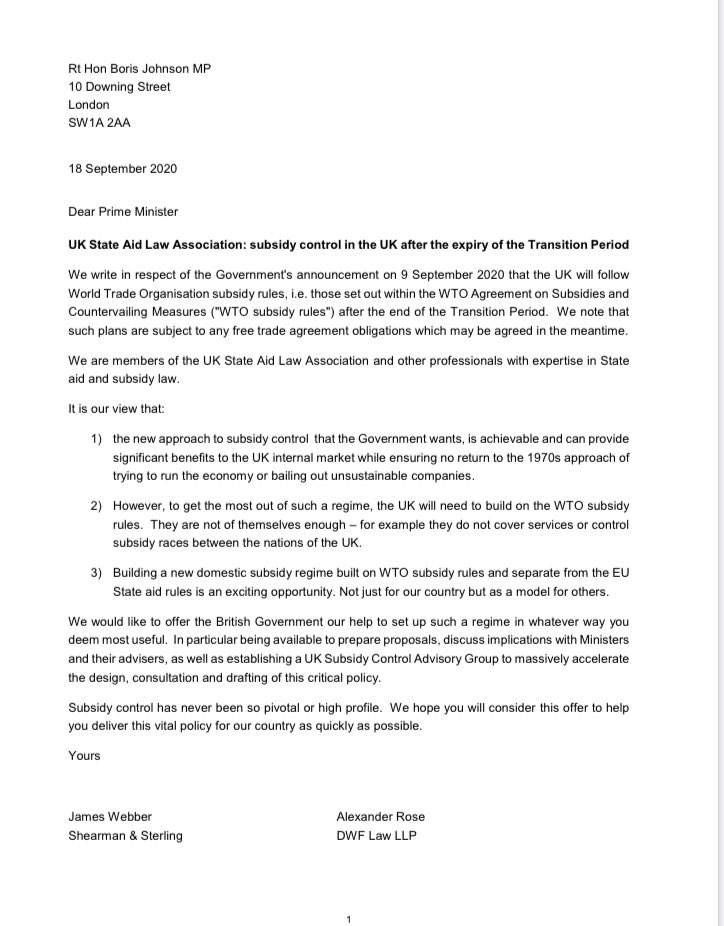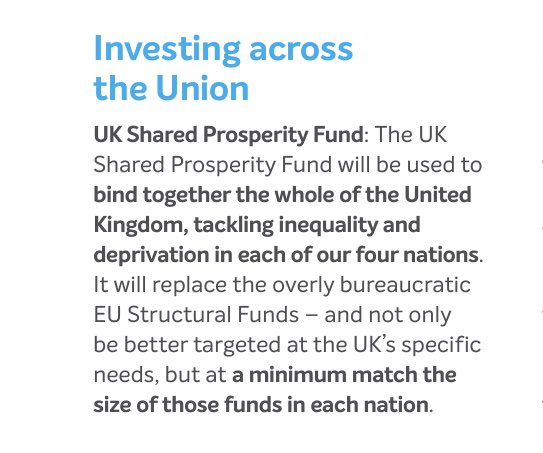The UK Government has laid a Statutory Instrument to revoke EU State aid rules.
It’s controversial because at this time the UK won’t have a workable replacement regime in place on 1 January 2020.
legislation.gov.uk/ukdsi/2020/978…
• a thread •
It’s controversial because at this time the UK won’t have a workable replacement regime in place on 1 January 2020.
legislation.gov.uk/ukdsi/2020/978…
• a thread •

On 9th September the Government announced that in a “no deal” scenario the UK will follow World Trade Organisation subsidy rules.
gov.uk/government/new…
gov.uk/government/new…
But the WTO rules were never designed to regulate domestic subsidies.
For that reason they don’t set out the basic rules most people expect to see in place for subsidies.
eg. transparency & limiting subsidies so they apply to genuinely incurred costs.
tinyurl.com/yxn7e3z7
For that reason they don’t set out the basic rules most people expect to see in place for subsidies.
eg. transparency & limiting subsidies so they apply to genuinely incurred costs.
tinyurl.com/yxn7e3z7

Indeed State aid experts wrote to the Government to warn that WTO rules, by themselves, were not sufficient on 18 September.
This included strong #Brexit advocates such as Martin Howe QC of @lawyers4britain as well as @jamesrwebber and @GeorgePeretzQC
tinyurl.com/yxjbraw5

This included strong #Brexit advocates such as Martin Howe QC of @lawyers4britain as well as @jamesrwebber and @GeorgePeretzQC
tinyurl.com/yxjbraw5


But this doesn’t necessarily mean we’ve seen the last of EU State aid.
The legislation allows cases to be brought (even after 1.1.2021) for existing subsidies and acknowledges the NI Protocol will apply EU State aid law for measures where trade between the EU and NI is affected.
The legislation allows cases to be brought (even after 1.1.2021) for existing subsidies and acknowledges the NI Protocol will apply EU State aid law for measures where trade between the EU and NI is affected.

But what we really need is a UK State aid regime in order to:
• coordinate public funding towards the UK’s economic priorities; and
• safeguard against wasteful excessive taxpayer funded subsidies.
Such a regime could also unlock trade talks with the EU.
• coordinate public funding towards the UK’s economic priorities; and
• safeguard against wasteful excessive taxpayer funded subsidies.
Such a regime could also unlock trade talks with the EU.

It’s clear that compromises are being offered in negotiations with the EU on this subject.
theguardian.com/politics/2020/…
theguardian.com/politics/2020/…
Therefore, @BorisJohnson should use the 93 days left by:
• appointing the @CMAgovUK as regulator of a UK regime via the UKIM bill;
• taking up the offer from experts to assist his Government with the drafting of a new regime; and
• accelerating a consultation.
*End*
• appointing the @CMAgovUK as regulator of a UK regime via the UKIM bill;
• taking up the offer from experts to assist his Government with the drafting of a new regime; and
• accelerating a consultation.
*End*

• • •
Missing some Tweet in this thread? You can try to
force a refresh























